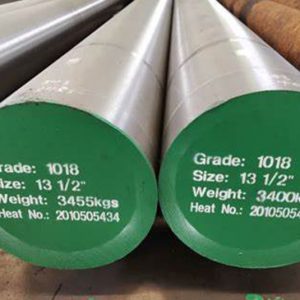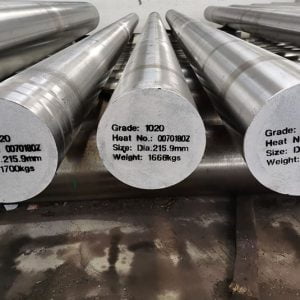Welcome to My Blog!
Before we dive into the content, I’d love for you to join me on my social media platforms where I share more insights, engage with the community, and post updates. Here’s how you can connect with me:
Facebook:https://www.facebook.com/profile.php?id=100087990137347
LinkedIn:https://www.linkedin.com/company/89825762/admin/dashboard/
YouTube:www.youtube.com/@carbonsteelsupply-kj9lw
TikTok:www.tiktok.com/@carbonsteelsupply
Now, let’s get started on our journey together. I hope you find the content here insightful, engaging, and valuable.
Введение
Carbon steel is a widely used material in various industries, including construction, manufacturing, and automotive. Its strength, versatility, and cost-effectiveness make it a preferred choice for many applications. In this blog, we’ll explore the key carbon steel benefits, how they contribute to different sectors, and why carbon steel continues to be a fundamental material in modern industry.
What is Carbon Steel?

Carbon steel is a type of steel in which the main alloying element is carbon. It typically contains up to 2.1% carbon by weight, making it harder and stronger than other types of steel, such as stainless steel, which contain higher percentages of chromium or other elements. Carbon steel can be further divided into three subcategories:
- Low-carbon steel: Contains less than 0.25% carbon, known for its ductility and ease of use.
- Medium-carbon steel: Contains 0.25% to 0.6% carbon, offering a balance of strength and malleability.
- High-carbon steel: Contains more than 0.6% carbon, providing high hardness but reduced ductility.
Each category of carbon steel has its own specific benefits, making it suitable for different industrial applications.
Key Benefits of Carbon Steel
Strength and Durability
One of the most significant carbon steel benefits is its impressive strength and durability. Carbon steel, especially medium- and high-carbon types, can withstand high stress and tension, making it ideal for heavy-duty applications like bridges, infrastructure, and machinery.
In the construction industry, carbon steel is often used in structural frameworks due to its ability to resist breaking or bending under pressure. Its strength makes it perfect for withstanding the heavy loads and environmental stresses found in infrastructure projects.
Cost-Effective Material
Another major carbon steel benefit is its cost-effectiveness. Carbon steel is much cheaper to produce compared to other alloys, such as stainless steel or aluminum. Its affordability does not compromise performance, which is why it’s commonly used in large-scale construction and manufacturing projects.
This combination of low cost and high strength provides excellent value, especially for companies looking to balance budget constraints with the need for durable materials.
Versatility in Applications
Carbon steel can be shaped into different forms, including sheets, plates, bars, and rods, allowing for its use across a wide range of industries. Its versatility is another of the major carbon steel benefits. It can be easily molded, welded, and machined, making it suitable for a variety of manufacturing processes.
Carbon steel is commonly used in producing tools, automotive parts, and pipelines. Its adaptability makes it valuable in both small-scale craftsmanship and large-scale industrial operations.
Recyclability
Carbon steel is 100% recyclable, which is an important advantage in today’s focus on sustainable practices. The steel recycling process saves raw materials, reduces energy consumption, and lowers CO2 emissions. This means that when you choose carbon steel, you’re not only getting a durable and cost-effective material but also contributing to environmental sustainability.
Heat Resistance
Many industries require materials that can endure high temperatures without losing their structural integrity. Carbon steel offers excellent heat resistance, especially high-carbon variants, which maintain their strength even under high-heat conditions. This is why carbon steel is often used in tools, automotive engines, and high-temperature industrial equipment.
Hardness and Wear Resistance
The higher the carbon content, the harder the steel becomes. High-carbon steel, in particular, is valued for its hardness and resistance to wear. This is especially beneficial in industries such as mining, tool manufacturing, and heavy machinery, where the material is exposed to abrasive forces regularly.
Table: Comparison of Углеродистая сталь Types
| Type of Carbon Steel | Carbon Content | Key Benefits | Common Applications |
|---|---|---|---|
| Low-Carbon Steel | <0.25% | High ductility, ease of forming | Automotive parts, pipelines |
| Medium-Carbon Steel | 0.25-0.6% | Balanced strength and malleability | Machinery, railway tracks |
| High-Carbon Steel | >0.6% | High hardness, wear resistance | Tools, cutting instruments |
Carbon Steel in Various Industries
Construction
Carbon steel’s strength and durability make it essential in construction projects, particularly in the creation of structural frameworks, bridges, and tunnels. Low-carbon steel is commonly used for its malleability, while medium- and high-carbon steel are favored for high-stress applications that require superior load-bearing capabilities.
Automotive
In the automotive industry, carbon steel is often used in the manufacturing of vehicle frames, body panels, and engine components. Its heat resistance and strength make it an ideal choice for parts that must endure extreme conditions, including high temperatures and mechanical wear.
Manufacturing Tools and Machinery
Another of the carbon steel benefits is its high wear resistance, which is why high-carbon steel is used extensively in manufacturing tools, knives, and cutting instruments. Its hardness allows for long-lasting sharpness and performance in tools that must handle repetitive tasks.
Pipeline and Energy Sector
Carbon steel is also widely used in the energy sector, particularly for pipelines that transport oil, gas, and water. Its durability and resistance to corrosion (with appropriate coatings) make it ideal for carrying these substances over long distances.
How Carbon Steel Benefits the Environment

As mentioned earlier, one of the greatest environmental carbon steel benefits is its recyclability. The ability to recycle steel helps reduce the consumption of raw materials like iron ore, as well as lowering the demand for energy-intensive steel production processes. The steel industry continues to innovate in reducing the carbon footprint associated with steel manufacturing.
Заключение
Carbon steel offers a host of benefits that make it essential across numerous industries. Its strength, durability, cost-effectiveness, and versatility make it an indispensable material for construction, automotive, and manufacturing industries. Whether you need material for large-scale infrastructure or precision tools, carbon steel provides the performance required for demanding tasks.
Choosing carbon steel ensures that you have a material that balances cost with reliability, making it a smart investment for your projects.
ЧАСТО ЗАДАВАЕМЫЕ ВОПРОСЫ
What are the primary benefits of carbon steel?
The primary carbon steel benefits include its strength, durability, cost-effectiveness, and versatility. It is also recyclable, contributing to sustainable practices in manufacturing and construction.
How does carbon content affect carbon steel?
The carbon content determines the hardness and strength of the steel. Low-carbon steel is more malleable and easier to shape, while high-carbon steel offers greater hardness and wear resistance.
Is carbon steel more affordable than stainless steel?
Yes, carbon steel is generally more affordable than stainless steel due to its simpler composition and lower production costs. However, it lacks some of the corrosion-resistant properties of stainless steel.
Can carbon steel be recycled?
Yes, carbon steel is 100% recyclable, making it an environmentally friendly material that helps reduce energy consumption and resource depletion in the production process.
What industries benefit the most from carbon steel?
Industries such as construction, automotive, manufacturing, and energy benefit the most from carbon steel, thanks to its durability, versatility, and cost-effectiveness.





